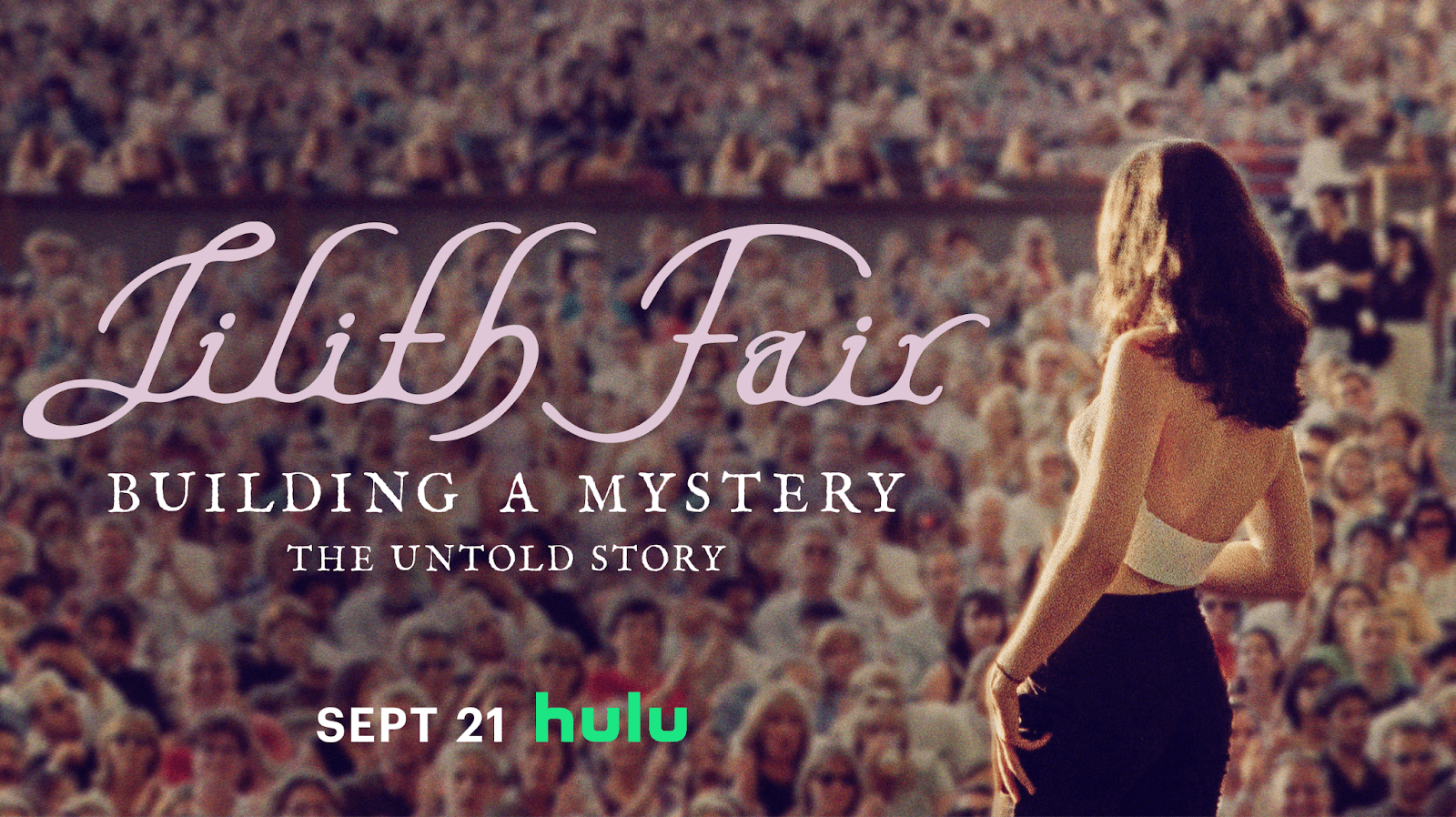
Written by Danielle Adelaide Cairo
Lilith Fair: Building a Mystery, a new music documentary on Hulu, offers an inside look at the untold story of the groundbreaking female-run festival that took place in the late 1990s.
Lilith Fair was founded by singer/songwriter Sarah McLachlan and featured almost solely female artists. The festival’s purpose was to defy the misogynistic music industry.
The festival was named after Lilith, a mythological figure who was known as Adam’s first wife but most importantly symbolized female independence. Like this heroine, the artists on the festival thought the name was fitting in regards to their independence from the male dominated festival scene.
Olivia Rodrigo, who appears in the documentary, was in awe of the festival. “Finding out that all of my favorite artists had played at this event…I was in disbelief that I had never heard of it before,” Rodrigo said. “Women singer-songwriters in the ’90s, I’m constantly looking to them for inspiration. They’re my northern stars.”
Sarah McLachlan began the festival with just Paula Cole, and herself. At the time, a two-woman show seemed so out of this world. Then they began to expand with a few more dates in ’96, which led them to selling out that summer run of the traveling festival. Women got the word of this revolutionary movement, and they were hooked but of course most men were furious including American media which drove most to make jokes like Jay Leno and the cast of Saturday Night Live. The festival was always at the butt of sexist jokes, but the women on the festival persevered and made history.
In 1999, after three long years of trailblazing, Sheryl Crow played Woodstock ’99, which excited the artists of the Lilith Festival, to give all they’ve got for one last time but are still wondering if they have done enough for all women out there.
The Lilith Fair documentary seemed all like a fantasy, women just able to enjoy life with one another. It was heartwarming to see the gay community be so accepted. The Indigo Girls stated, “because we were so gay and so puppy dog-like,” no one in the audience seemed to care, everyone was so accepting of one another.
The documentary excelled at capturing the essence of what the women of the festival accomplished – a cultural shift for all women of the ’90s. It was filled with inspiring moments, like when Erykah Badu spoke about having her newborn with her on tour and everyone was very loving and caring towards her. She recollected having hormonal changes yet felt so comfortable and loved which she hasn’t felt in any other tour she’s done. All in all, the tour was created to bring peace and unity.
Overall, Lilith Fair seemed like a revolutionary time in history, and the documentary does an amazing job to make you feel the emotion behind it all. Sadness, happiness and feelings marked by a mix of connection and unity were felt through the TV screen. It all seemed like such an awesome time to be alive, being brought together by the sounds of music and love. So, we ask, “How about now, though?” Is the whole topic of “women in music” as important as it was 30 years ago? Do sing-songwriters want to be popular or make a real difference all over again? These questions are important to ask because they matter to women now and for the women in the future. Women are represented less and less, let’s bring feminism and stage-sharing back out again. Let’s open up that “mystery” and build harmonic unity.

